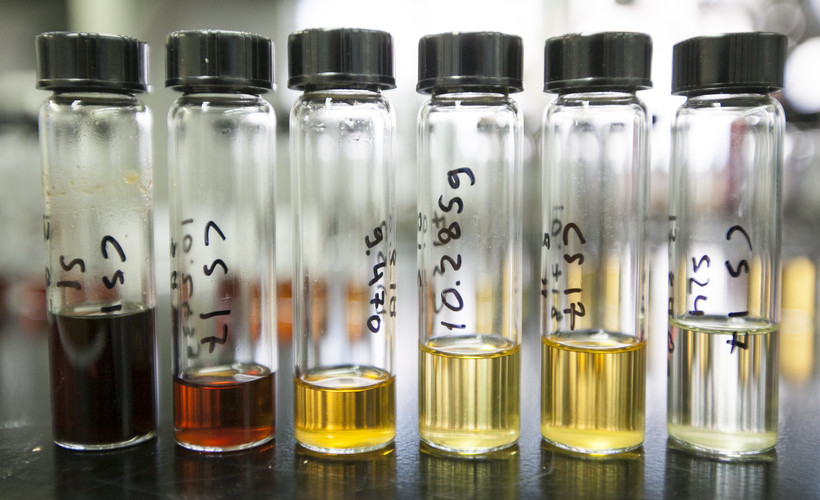30 Jan WPR: Could fuel from plants replace petroleum? Wisconsin researchers think so

Researchers at the Great Lakes Bioenergy Research Center have developed a new biomass deconstruction method that works with a wide variety of energy crops and avoids the use of expensive chemicals. By using GVL, an organic solvent that can be produced from plants, researchers can deconstruct biomass and produce soluble C6 and C5 carbohydrate oligomers and monomers that can be converted into biofuels and bioproducts. (Photo by Matthew Wisniewski/Great Lakes Bioenergy Research Center)
Researchers at UW-Madison are generating decarbonized fuels from plant material to create a more sustainable transportation sector.
Plants have already blazed a path for meat alternatives, but they could also transform the transportation industry, Wisconsin researchers say.
Researchers at the University of Wisconsin-Madison’s Great Lakes Bioenergy Research Center are creating carbon-neutral fuels they hope to power the transportation sector through deconstructed, nonfood plant materials.
“We are producing the basic science knowledge on campus to generate the fuels and chemicals that will allow us to have a decarbonized economy and create environmental and economic benefits for the people of Wisconsin and around the United States,” said Tim Donohue, principal investigator and director of the Great Lakes Bioenergy Research Center.
Researchers like Donohue are generating fuels from non-food plants like switchgrass, sorghum and poplar to produce renewable energy. As one of four federally-funded research hubs, the organization is part of a larger collaboration to curb climate change.



